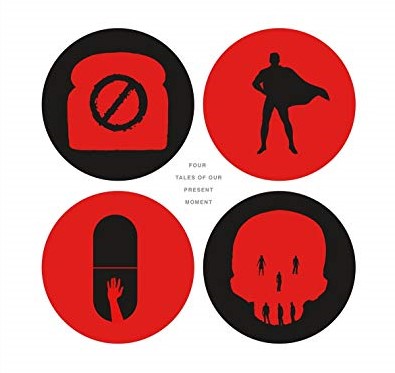I did a summer reading list about 6 months ago. In fact, I did two of them. Let’s try a winter reading list! And this time I’ll combine fiction and non-fiction into a single list. Here’s what I’ve been reading this winter, along with an upcoming book or two.
Sarah Broom – The Yellow House
The first thing to say about this is that there’s a lot of book here. Not in terms of length, but in terms of range of topics and emotional content. Broom’s memoir is about her family’s house in New Orleans. But it’s about much more: residential segregation, family history, Hurricane Katrina, and returning home. I didn’t really expect this book to become my biggest winter reading list challenge, but there I was. I read it shortly before flying home for Christmas, or at least to a place that was home when I was a kid. And this year, the trip came about a month after the death of my grandmother, who was a huge part of my life back in those days. Broom’s story is probably more complicated and interesting than mine, but it’s nice to have motivation to think about the place and people of ‘home’.
Cory Doctorow – Radicalized
This is less a book than a collection of four novellas around a common theme. What’s the theme? Doctorow focuses on tech dystopias. The topic’s been on my mind lately, though my focus is more on the dystopian potential of the present. Doctorow spins fantastic tales of the near future. The strength of these stories is that they’re both fantastical and plausible. He hits just closely enough to the surveillance state, the oppressive immigration system, racism, et al. that these stories become believable.
Daniel Immerwahr – How to Hide an Empire
Immerwahr bills this book as a ‘territorial history’ of the ‘Greater United States.’ Most people think about US history – and even US empire – in terms of the continental 48 states plus overseas conflicts. But Immerwahr draws attention to the US’s long history of direct colonization of overseas territories, places like the Philippines, Hawai’i, Guam, et al. He thinks political analysis in the US ignores these places at the peril of good interpretive work. The book has gotten a mixed reception on the political left. But I think it’s worth a winter reading list read as long as you view it as a directed and limited history.
Erik Olin Wright – Understanding Class
This is an excellent introduction to the study of class. Wright’s magic is applying Marxist principles to the 21st century in a way that doesn’t require understanding Marx to understand class. It’s not easy to do. Not that there’s anything wrong with understanding Marx. If you want to do that, read David Harvey. But if you want to read about class and varying perspectives on class – from class stratification approaches to Weberian approaches to Marxist ones – read this book. The book isn’t without its faults. I think Wright wrongly attributes to Marx a normative theory, and his writing is sometimes clunky in ways we might expect of a good academic sociologist. But his writing is also impeccably clear…in ways we might expect of a good academic sociologist.
Michael Walzer – A Foreign Policy for the Left
I suspect this is the most polarizing book on my list. Walzer’s the longtime editor of Dissent, an older leftist magazine representing a viewpoint associated with the ‘right wing’ of leftist movements. He starts his book with what I think is an excellent point: there’s no real leftist consensus on foreign policy, even at very basic levels. And so, Walzer proposes a consensus. While I think the project is a noble one, I don’t think Walzer’s consensus works. His views – pro-democracy, pro-global fair trade, pro-Israel, pro-war in cases like Kosovo and Afghanistan, anti-war in cases like Iraq or Iran – are difficult to disentangle from standard liberal or progressive ones. There’s nothing discernibly leftist about this attempted leftist foreign policy consensus.
Winter Reading List Bonus: Upcoming Books
So, what’s next on the winter reading list? Here’s what I’ve got in the pile.
Nathan J. Robinson – Why You Should Be a Socialist
You’ve probably heard of Robinson as the editor of Current Affairs. Or maybe you haven’t. Whatever. Robinson is the editor of Current Affairs. In this case, the ‘pile’ is quite literal. I’ve got a pile of books to read sitting next to me as I write this post. And this book is on the top of it. I’m interested in what he has to say by way of an argument for socialism. Also, I’m interested in how his approach contrasts to others.
James S.A. Corey – Unnamed Final Novel
I’ve been reading the books from The Expanse series for several years now. And I’m awaiting the final novel, which is supposed to come out later this year. As yet, the date and title are unannounced. I’m still waiting. I’ll just watch the TV series while I wait.
